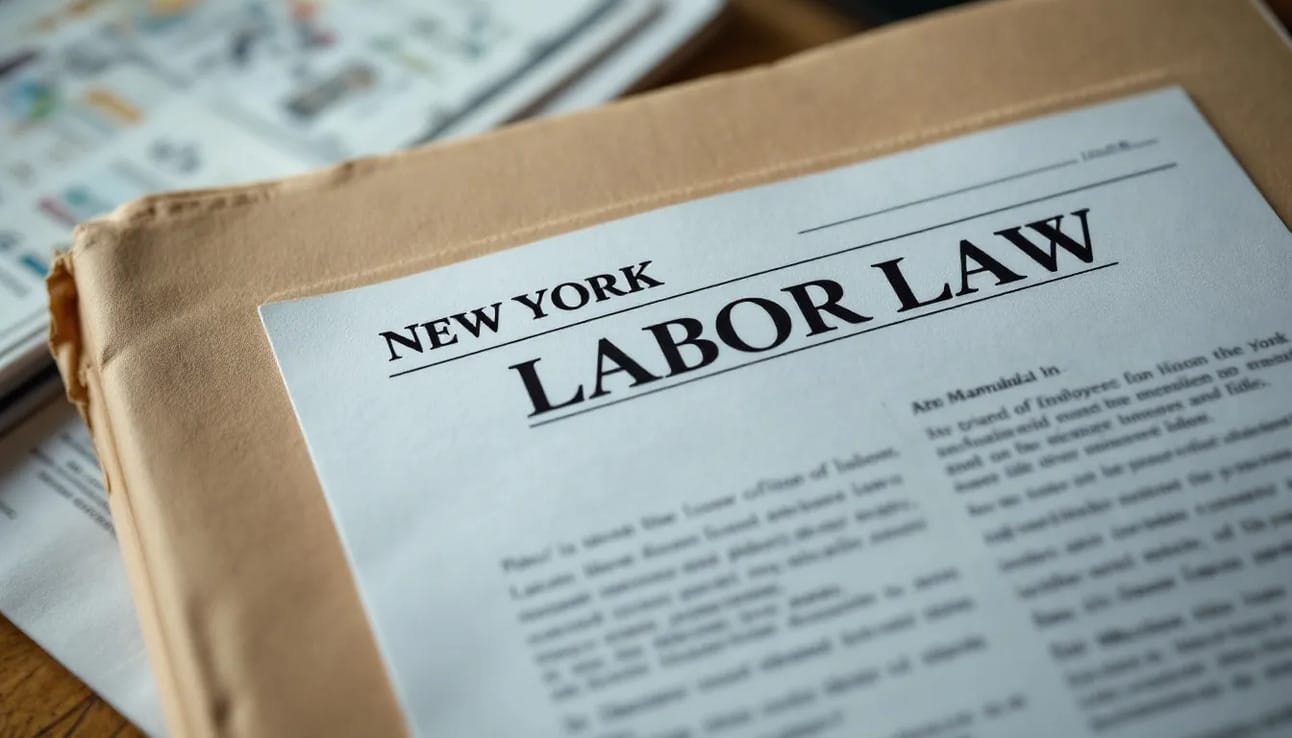
When an employee quits or is terminated, many employers focus on logistics—collecting keys, disabling accounts, and notifying payroll. But in New York, delaying the final paycheck can expose your business to serious legal and financial consequences. It’s not just about sending a check—it’s about when, how, and what must be included.
Let’s break down the rules so you don’t end up paying far more than you expected.
What the Law Requires in New York

Under the New York Labor Law (NYLL):
Final pay is due on the next regular payday after the employee’s last day of work—whether they quit, were terminated, or were laid off.
Final pay must include all wages earned, including accrued and unused vacation or PTO if your policy or past practice treats it as payable.
The payment must be in the same form as usual (e.g., direct deposit, check, etc.).
💡 Even if you’re busy or short-staffed, “We didn’t get to it yet” is not a valid defense. Missing a final paycheck deadline can lead to back pay, penalties, and legal fees.
Failure to pay by the next payday may violate the NYLL and subject you to liquidated damages equal to 100% of the unpaid wages.
💡 Want to learn more about WTPA penalties? Read our WTPA Compliance Guide.
Real-World Scenario: A Costly One-Week Delay

An employee making $1,200/week resigns on a Friday. The company’s HR team intends to include them in the next pay cycle, assuming that’s fine. But the law doesn’t make room for payroll convenience. The check goes out the following Friday—one full pay cycle later, even though the amount is accurate. The employee, feeling overlooked, files a complaint with the NYS Department of Labor—not because they were shorted money, but because they were paid late. And in wage law, late is unlawful.
Here’s what that one-week delay could cost:
Violation | Basis | Amount |
|---|---|---|
Unpaid wages | $1,200 | $1,200 |
Liquidated damages (NYLL) | 100% of unpaid wages | $1,200 |
If multiple employees are let go during a reduction in force and final paychecks are mishandled? Multiply accordingly.
What About PTO and Commissions?

In New York, employers must follow their own policies when it comes to final payout of unused vacation or paid time off (PTO).
If your handbook or offer letter says PTO is forfeited upon resignation, you generally don’t have to pay it.
If your past practice or policies suggest it will be paid, you’re expected to follow through.
For commissions, the rules get trickier:
If they’ve been earned and calculated, they must be paid in the final check.
If they’re not yet earned (e.g., dependent on future events), they may not be due yet—but document this clearly.
💡 Misunderstanding when commissions become "earned" is one of the most litigated areas in final pay disputes. If in doubt, get legal advice before you withhold.
How to Avoid Final Paycheck Penalties

Avoiding costly final paycheck mistakes isn’t about perfection—it’s about building systems that don’t leave room for forgetfulness. In New York, a small oversight can snowball into thousands in liability, even when the wages owed are paid in full. To stay in the clear, employers must treat separation dates like deadlines, not suggestions.
Here’s what that looks like in practice:
Flag the final pay date immediately when processing the termination.
Review your written policies on PTO, vacation, and commissions—and make sure they match your actual practice.
Always issue a final wage statement that reflects all wages paid and the exact payment method.
Document everything: payment date, amount, and method—and keep proof.
If you’re unsure whether something is owed, err on the side of paying now and clarifying later.
📝 Download the Final Paycheck Compliance Checklist → [Link coming soon]
This checklist helps you:
Confirm the employee’s work location and separation reason
Validate whether PTO, commissions, or bonuses must be included
Ensure proper payment timing and format
Retain clear records to defend against any future claims
Example: A restaurant manager resigns on a Wednesday. Payroll doesn’t get notified until the following Monday. By the time the final paycheck is issued—one pay cycle late—the company has technically violated the NYLL. Although the manager received every penny owed, they were entitled to it on time, not just eventually. That late payment triggered $1,200 in liquidated damages and a $5,000 WTPA penalty. The cost? Over $6,000 for a single late paycheck.
📌 Task added to Running To-Do List: Final Paycheck Compliance Checklist (Article Series Downloadable Resource)
Don’t Forget the Termination Notice

New York employers are also required to provide a termination notice when an employee leaves—regardless of whether the separation was voluntary or involuntary. This isn’t just a best practice; it’s the law.
At the time of separation, you must give employees:
A written notice of the exact date of termination
The name, address, and phone number of the employer
Their right to apply for unemployment benefits
The New York Department of Labor provides a template notice for this purpose:
🔗 Notice of Termination and Eligibility for Unemployment Insurance Benefits (Form IA 12.3)
This form should be delivered along with the final paycheck and any required WTPA wage statement. Skipping this notice could delay an employee’s access to benefits—and result in unnecessary scrutiny from the Department of Labor.
📌 Task added to Running To-Do List: Add UI Termination Notice (Form IA 12.3) to all offboarding packages.
Final Thoughts: Why It All Matters

Keep fighting the good fight.
Final pay may feel like a small administrative detail—but in New York, it’s a legal landmine waiting to go off. One missed check, one incorrect date, or one line of unclear policy, and suddenly you’re defending yourself against a claim you didn’t see coming.
These violations aren’t always the result of bad faith. Most final paycheck errors happen because someone didn’t hit "submit" on time, didn’t realize PTO had to be included, or assumed a commission wasn’t owed yet. But under New York law, those mistakes can be just as costly as intentional underpayment.
Taking time to tighten your offboarding workflows, clarify your payment policies, and train managers on separation procedures doesn’t just protect your bottom line—it shows your team that even on the way out, employees are treated fairly and lawfully.
Because how you pay someone on their last day says a lot about who you are the day after.

